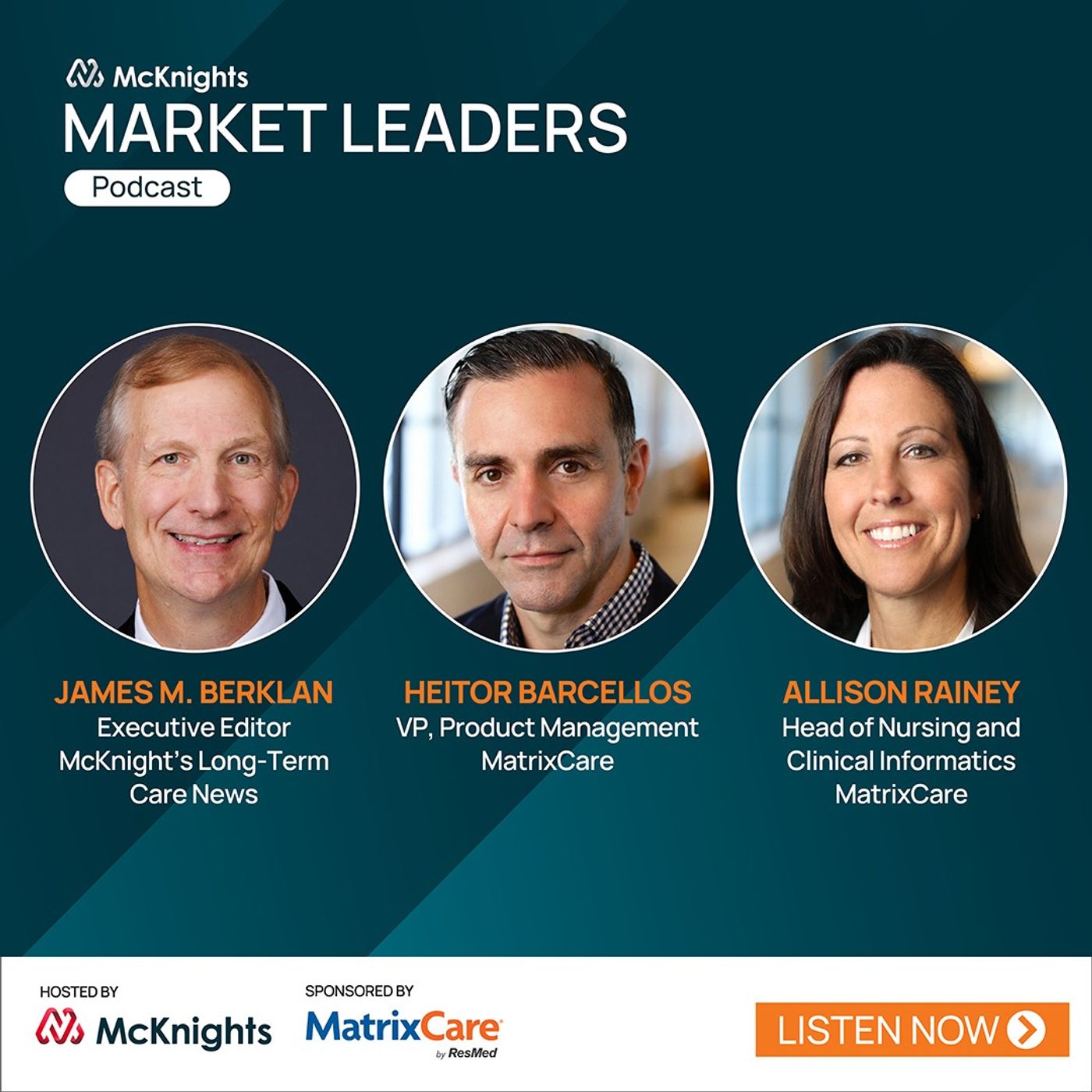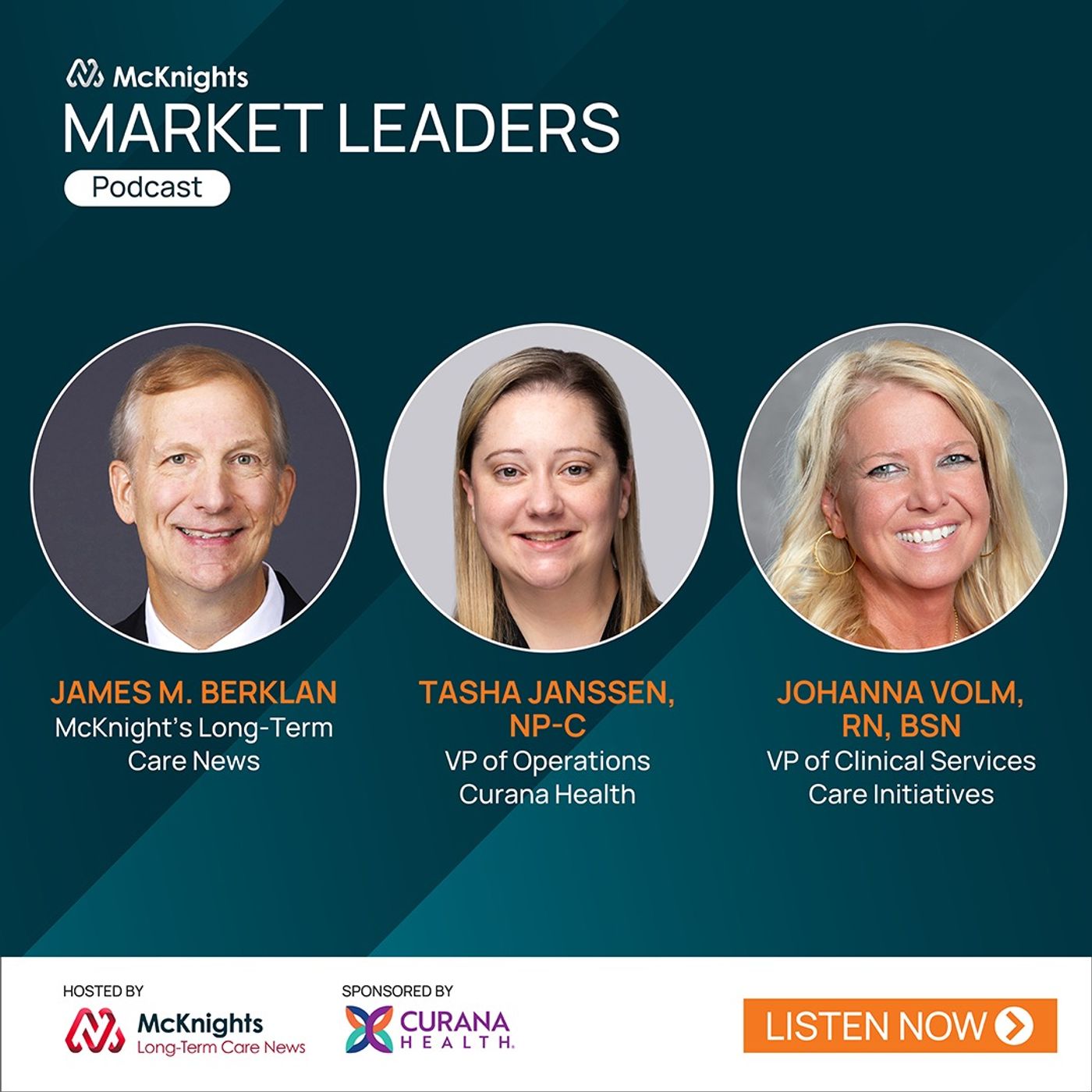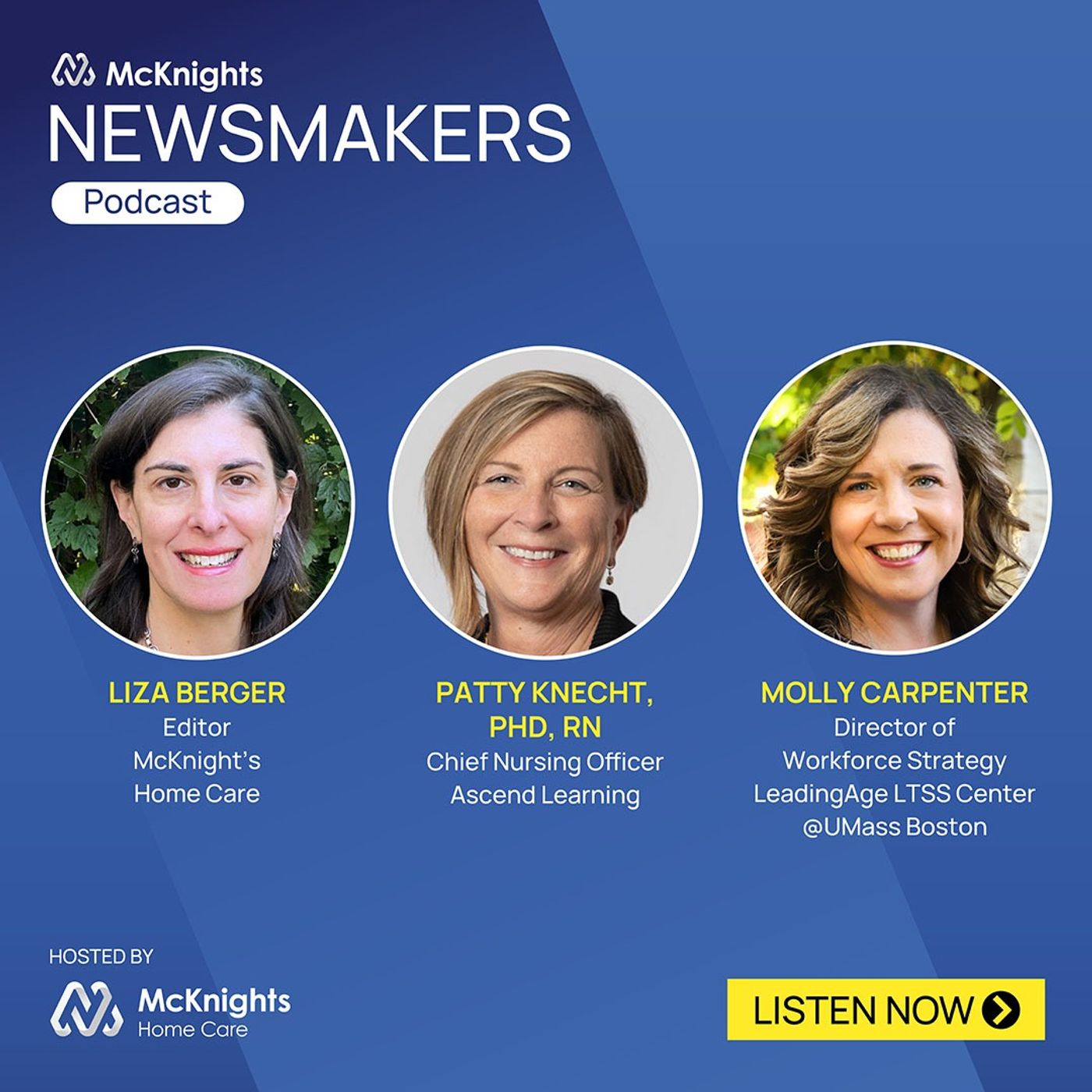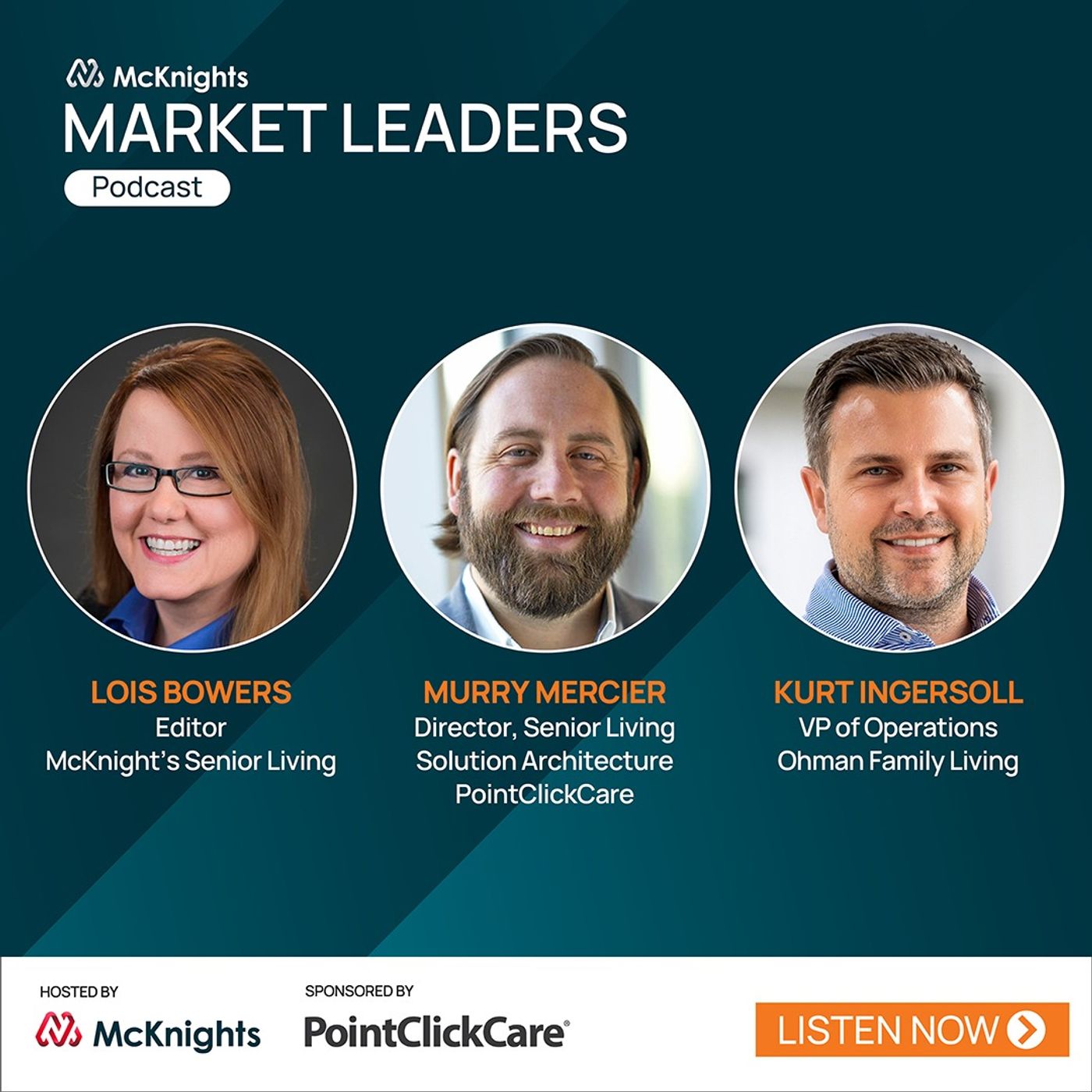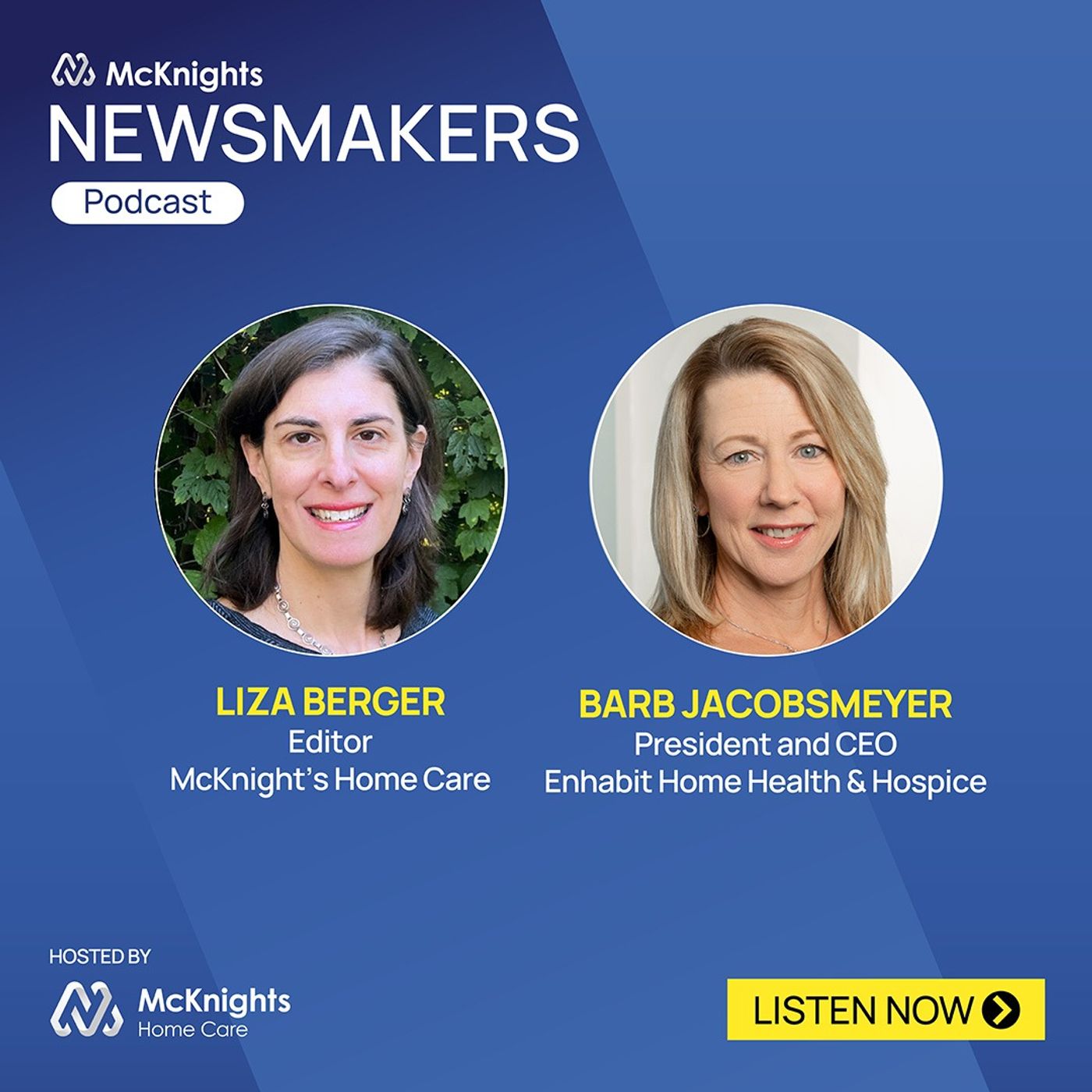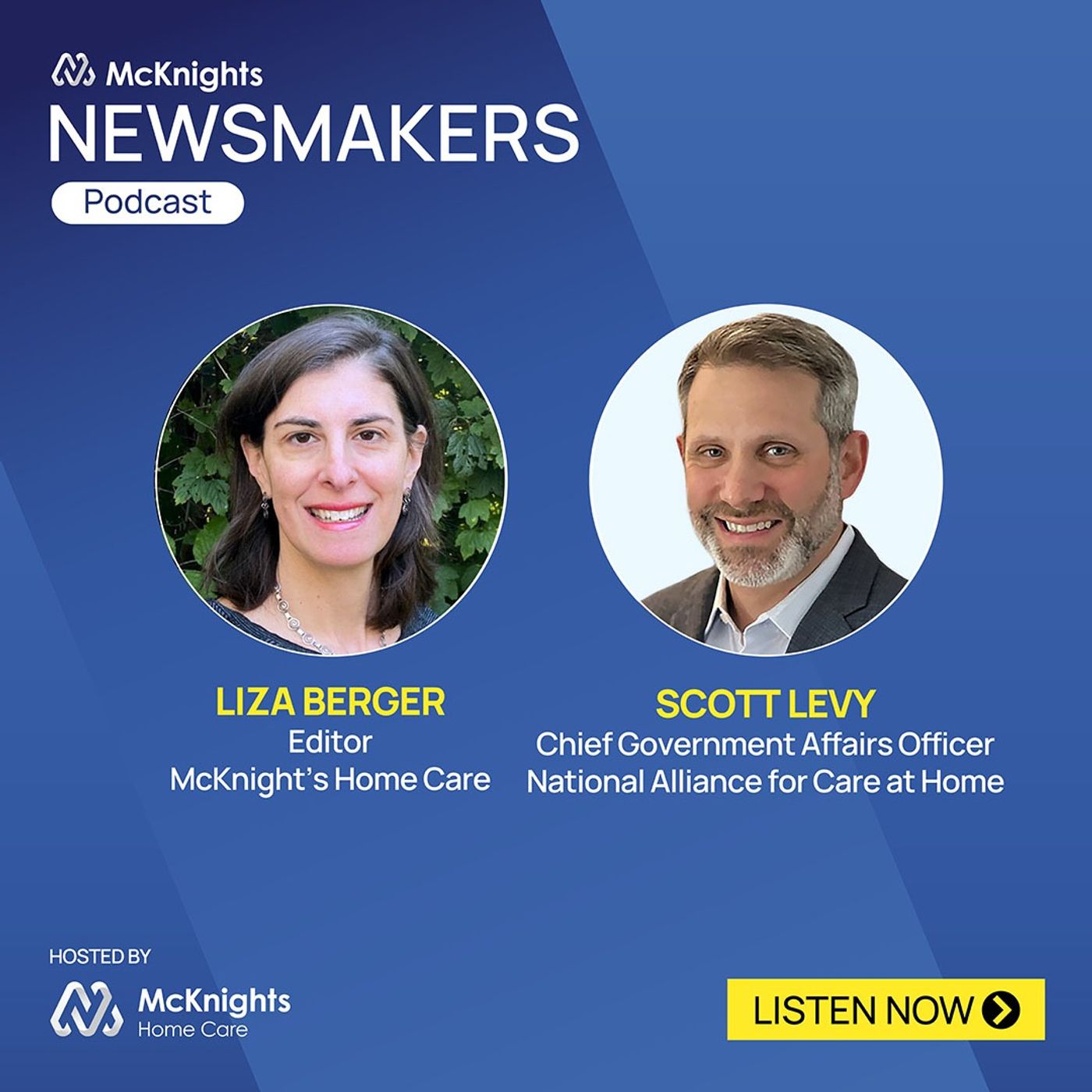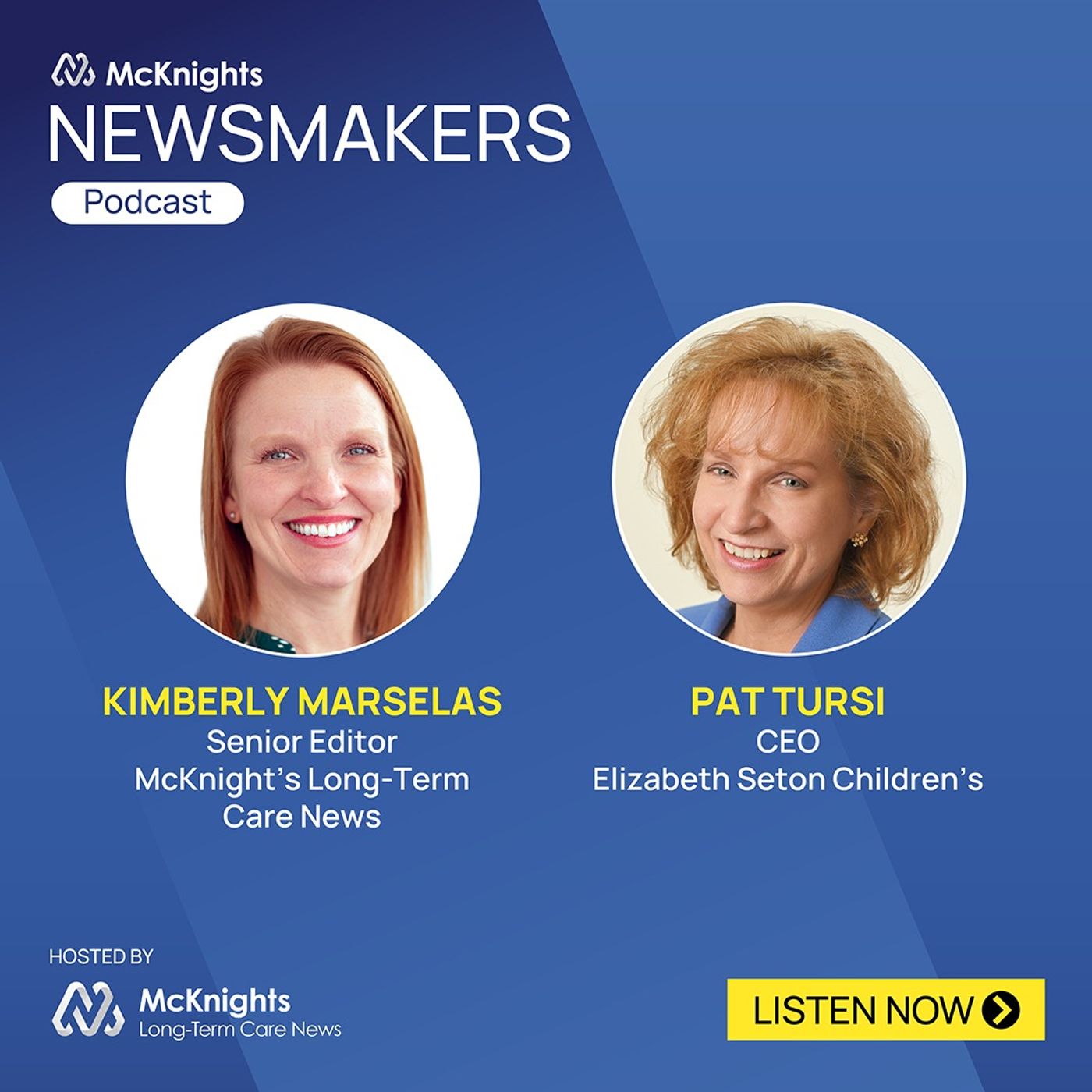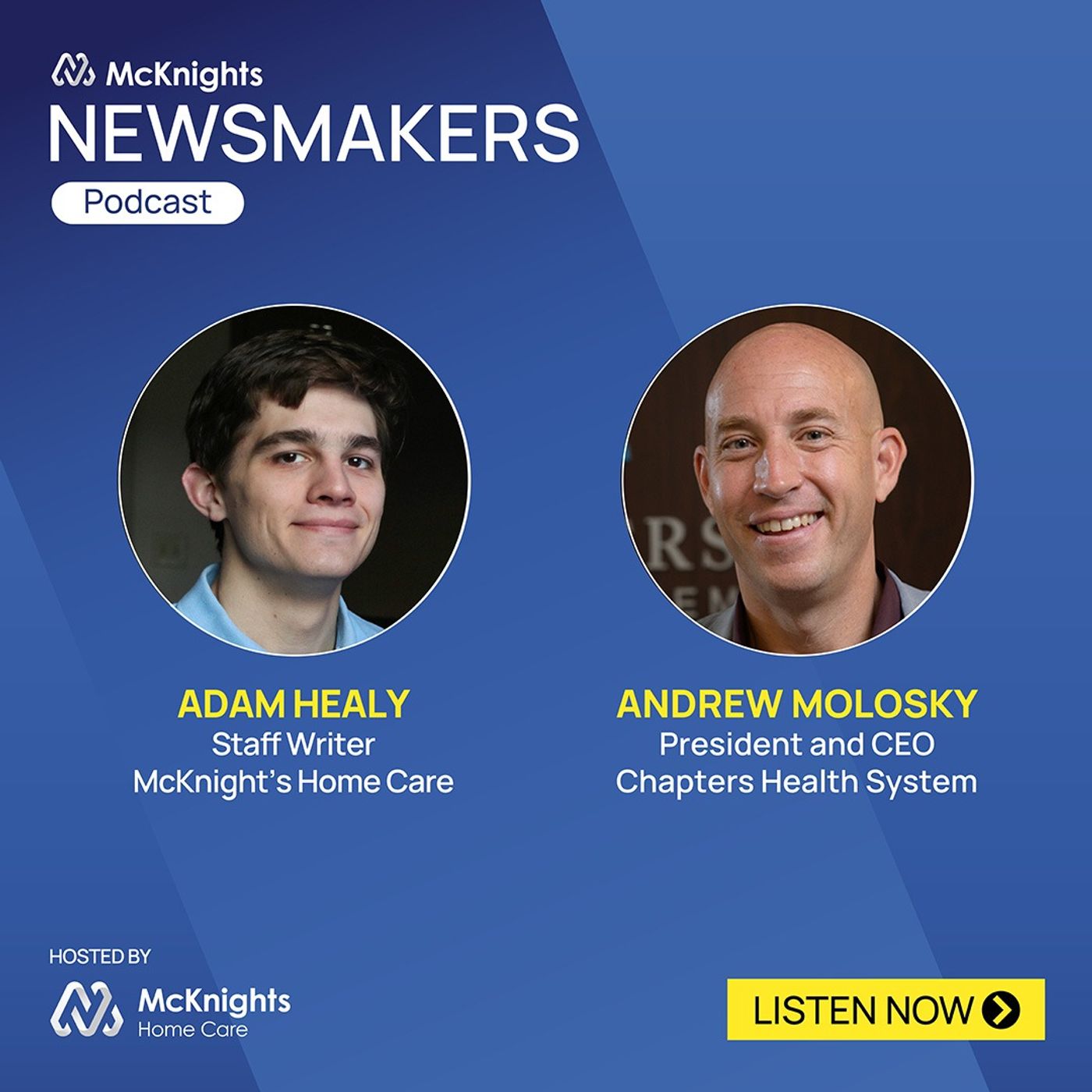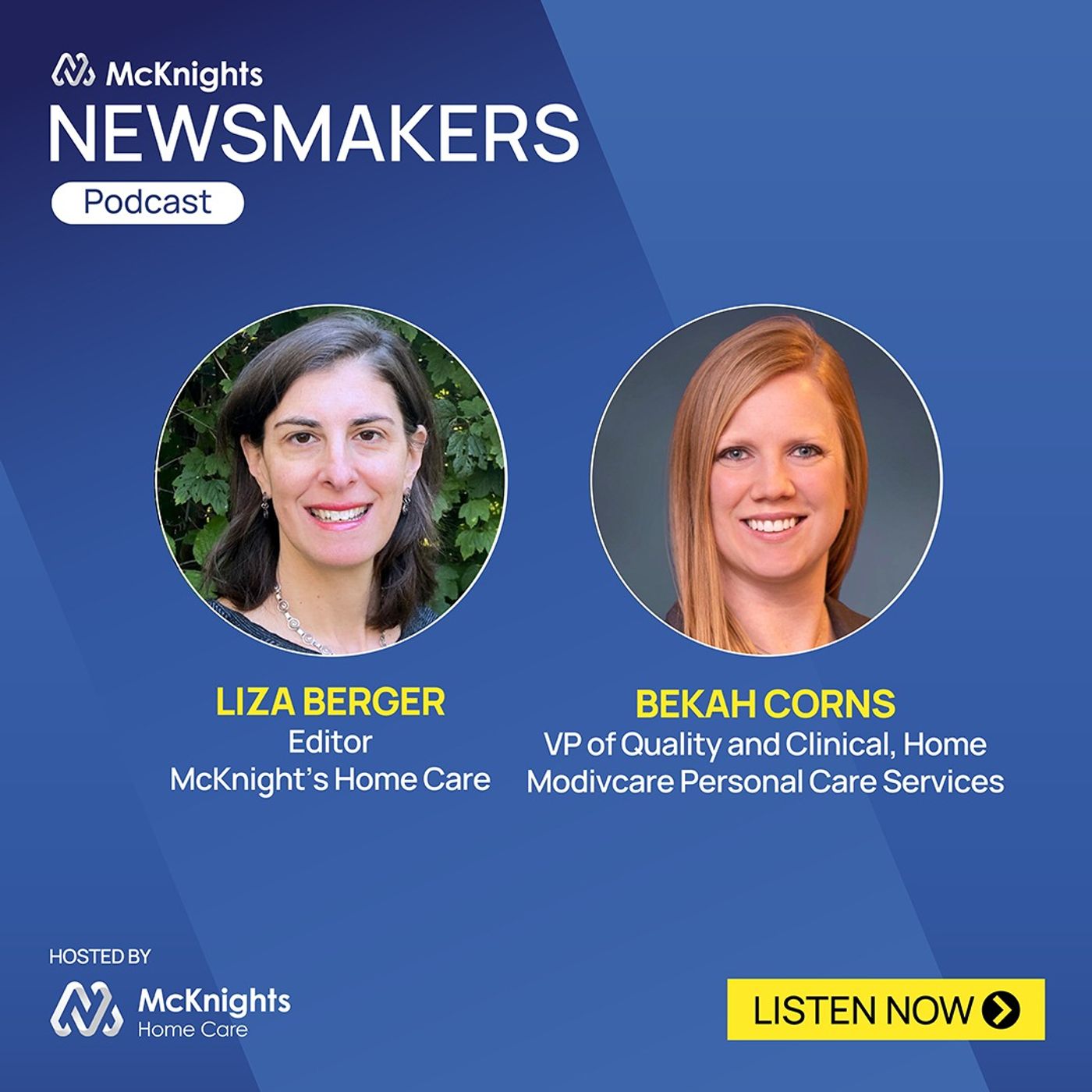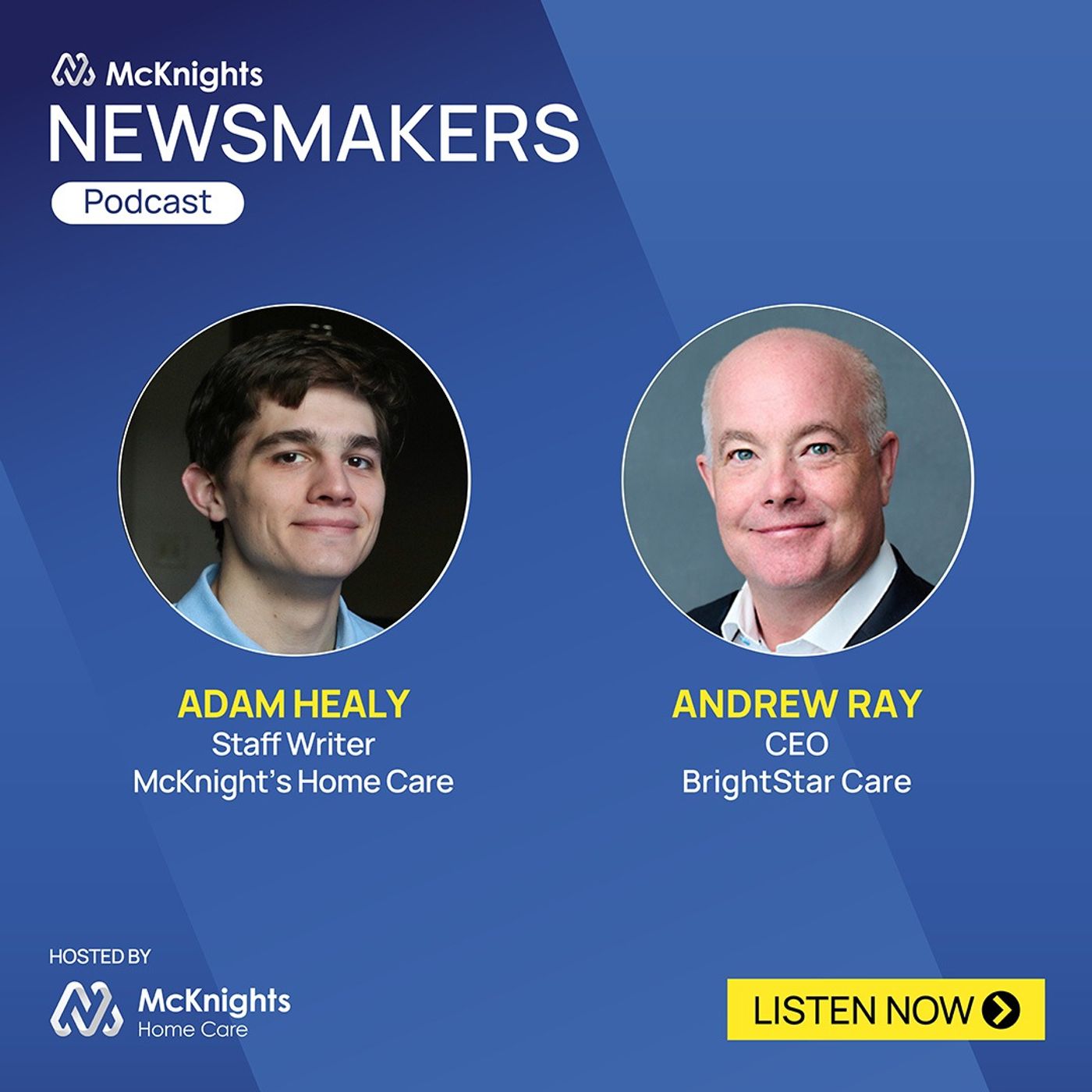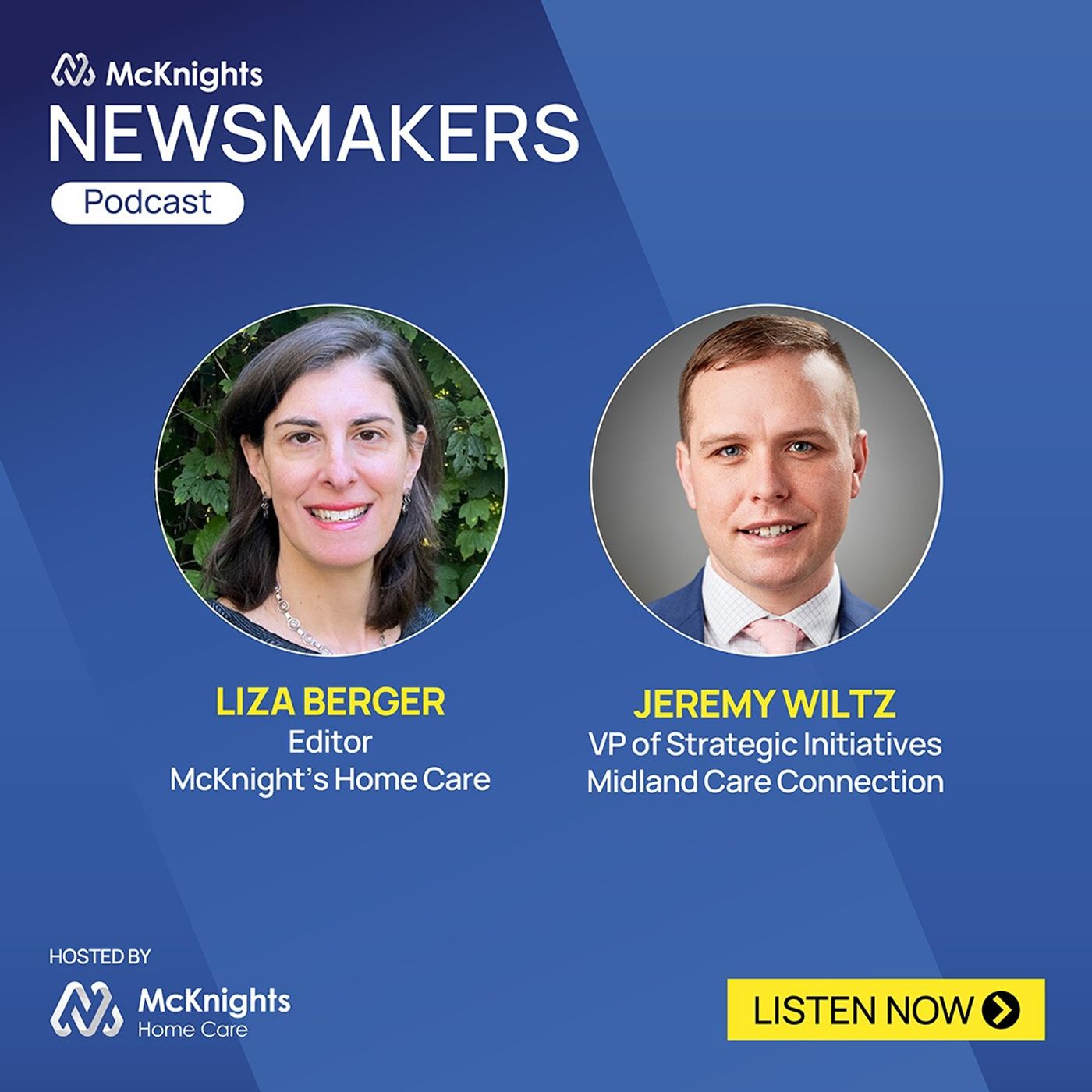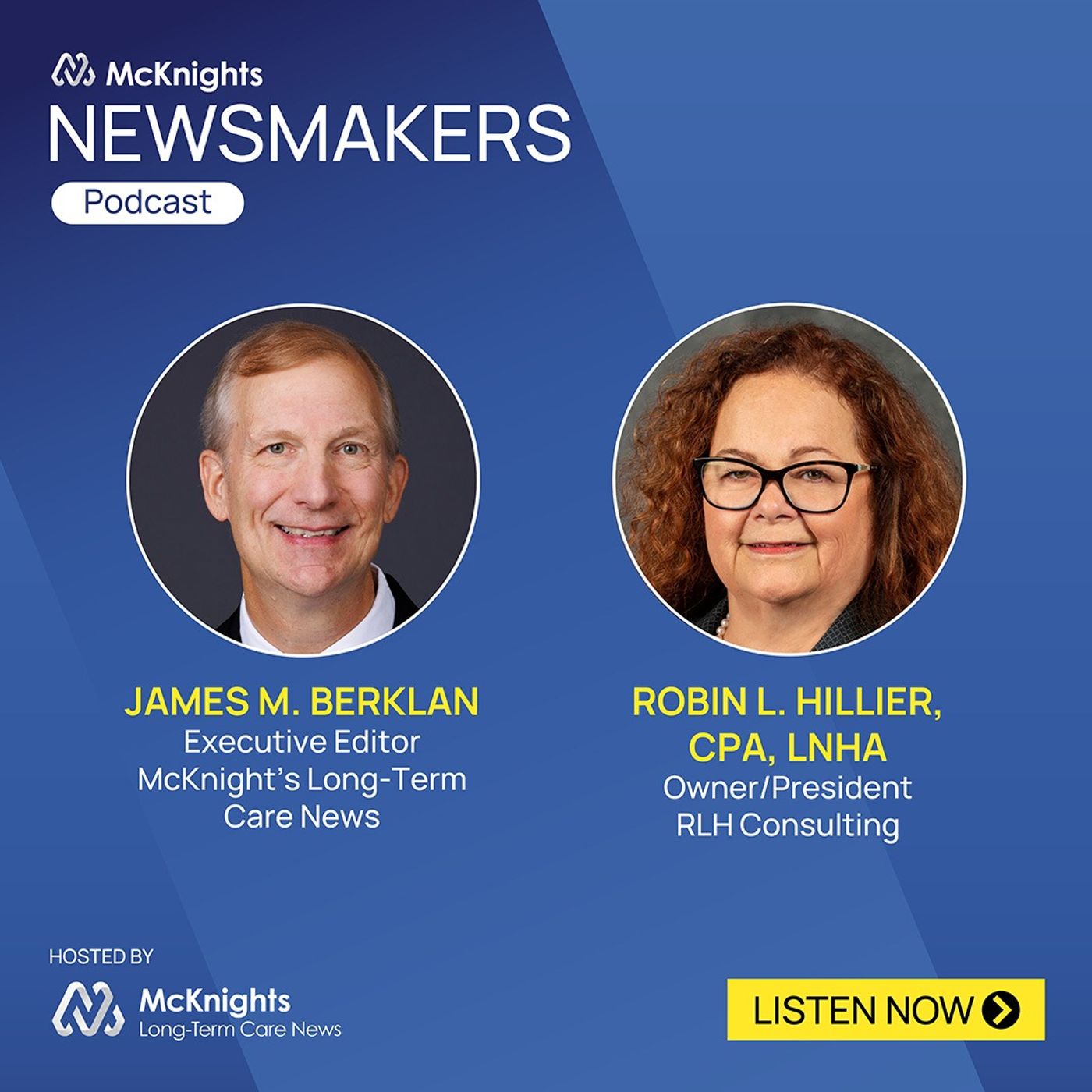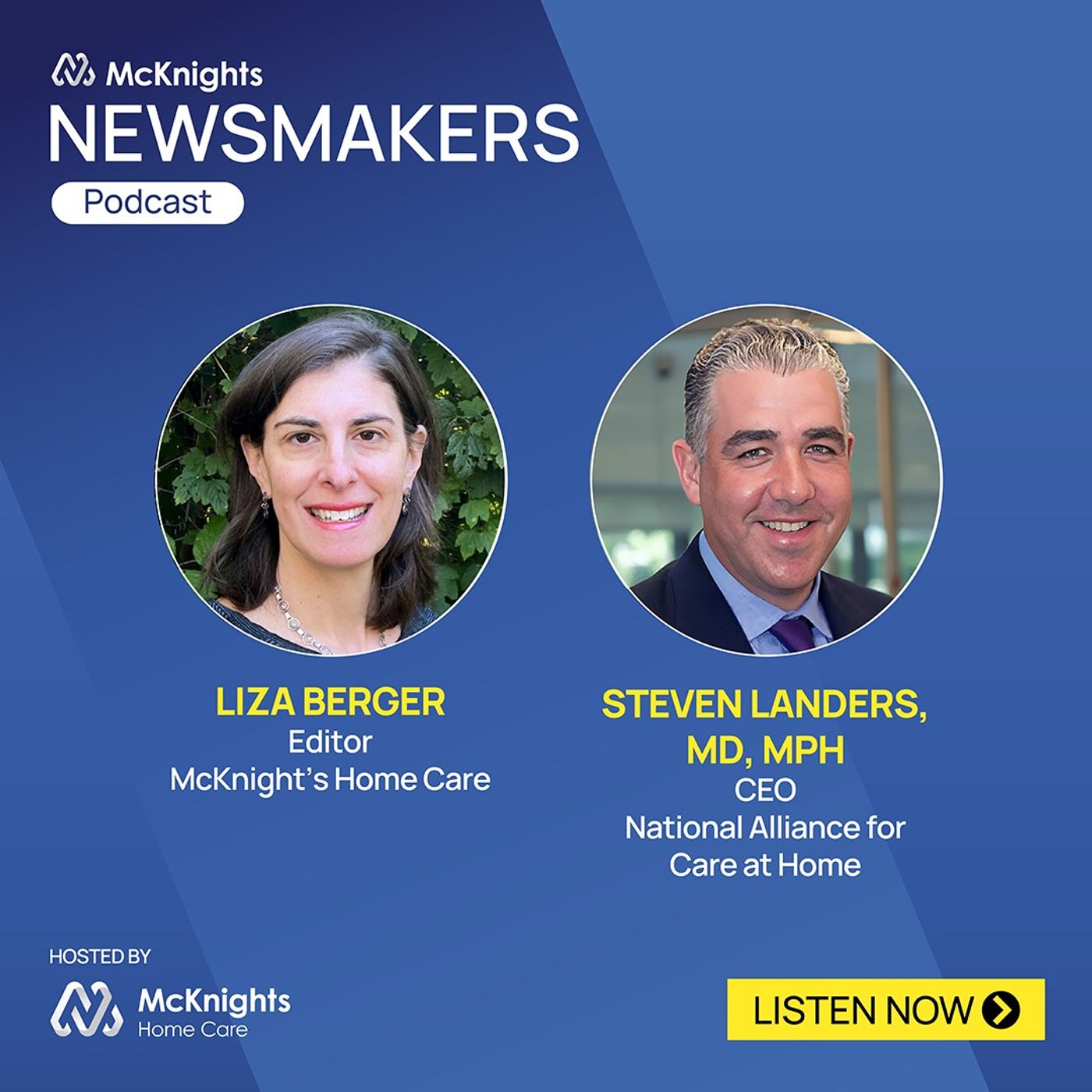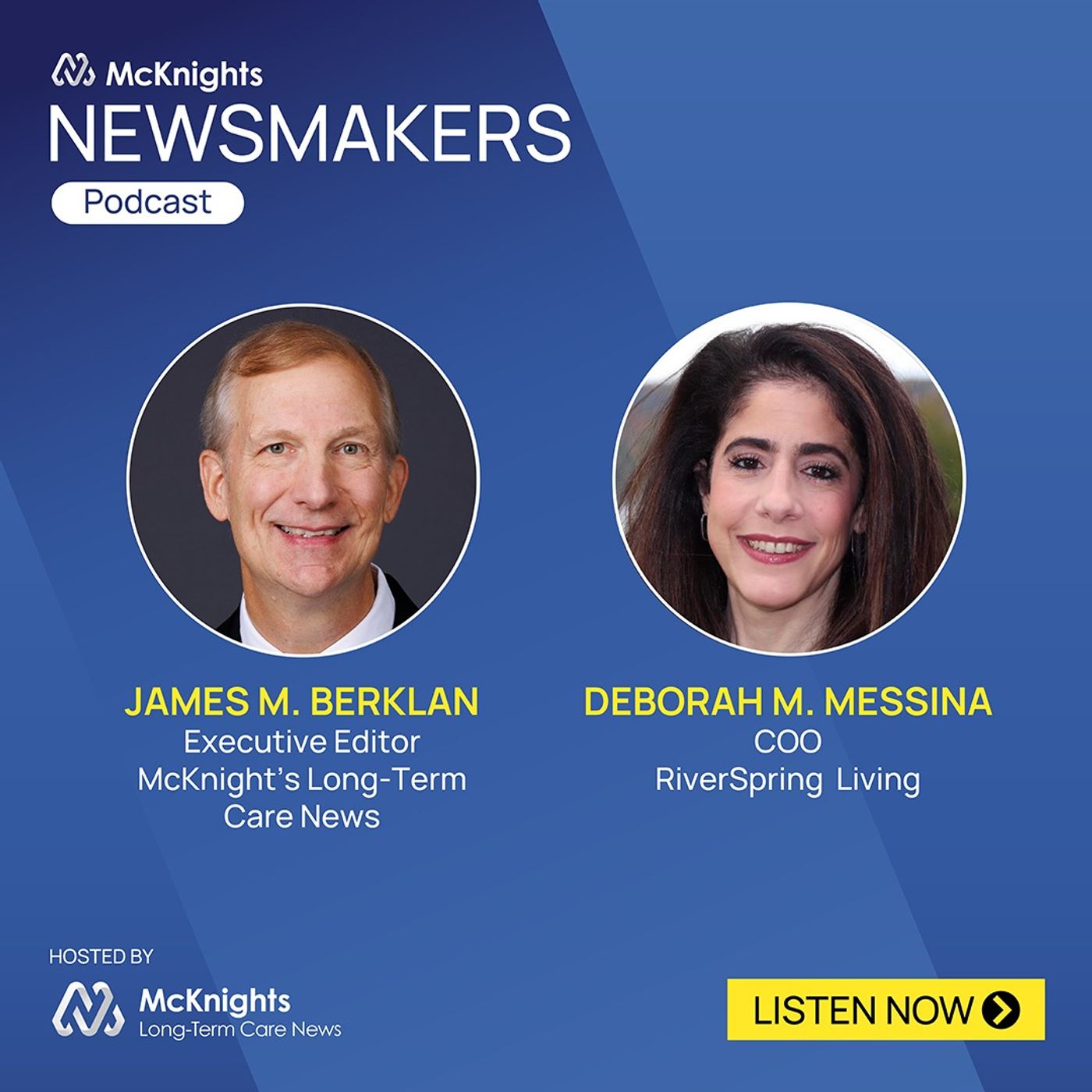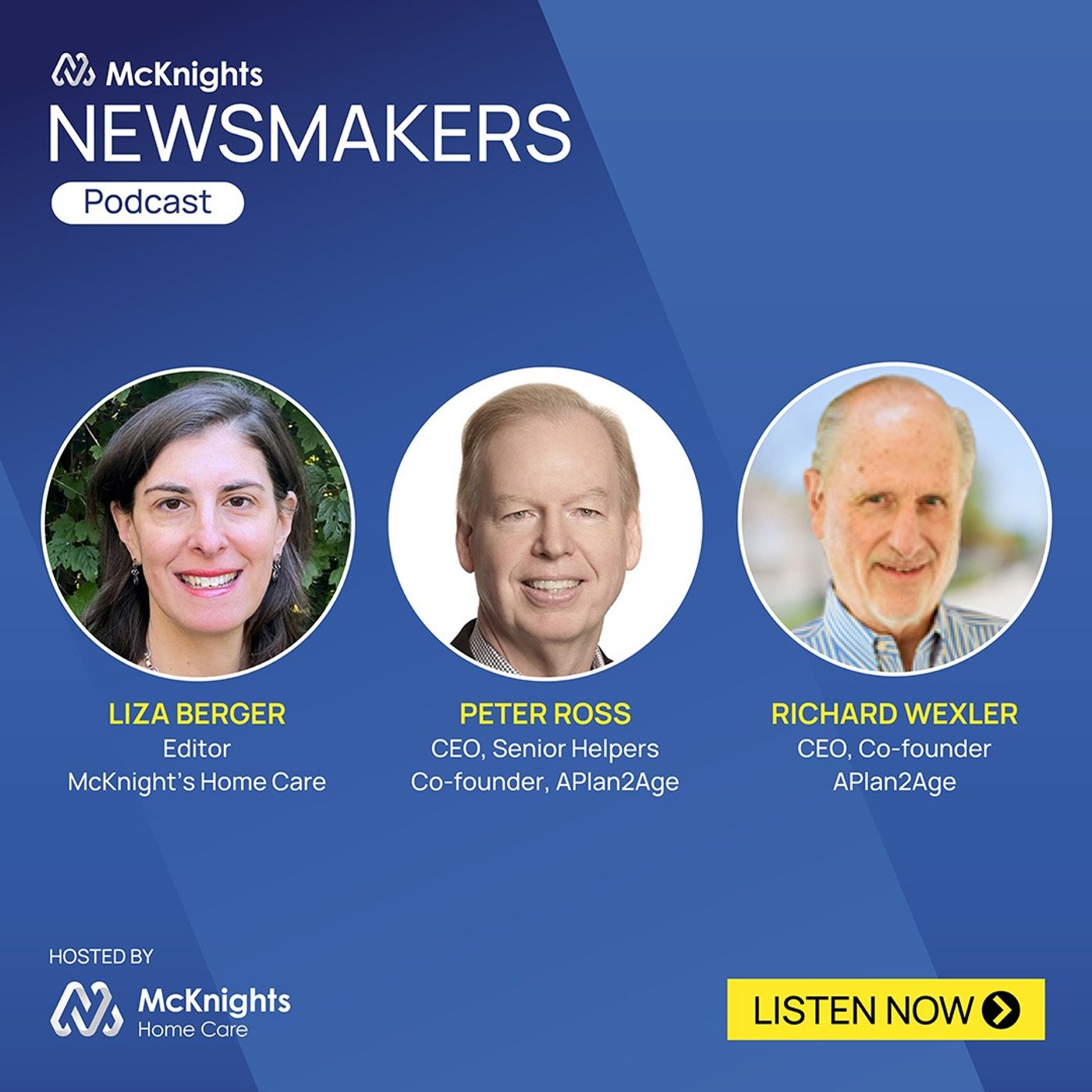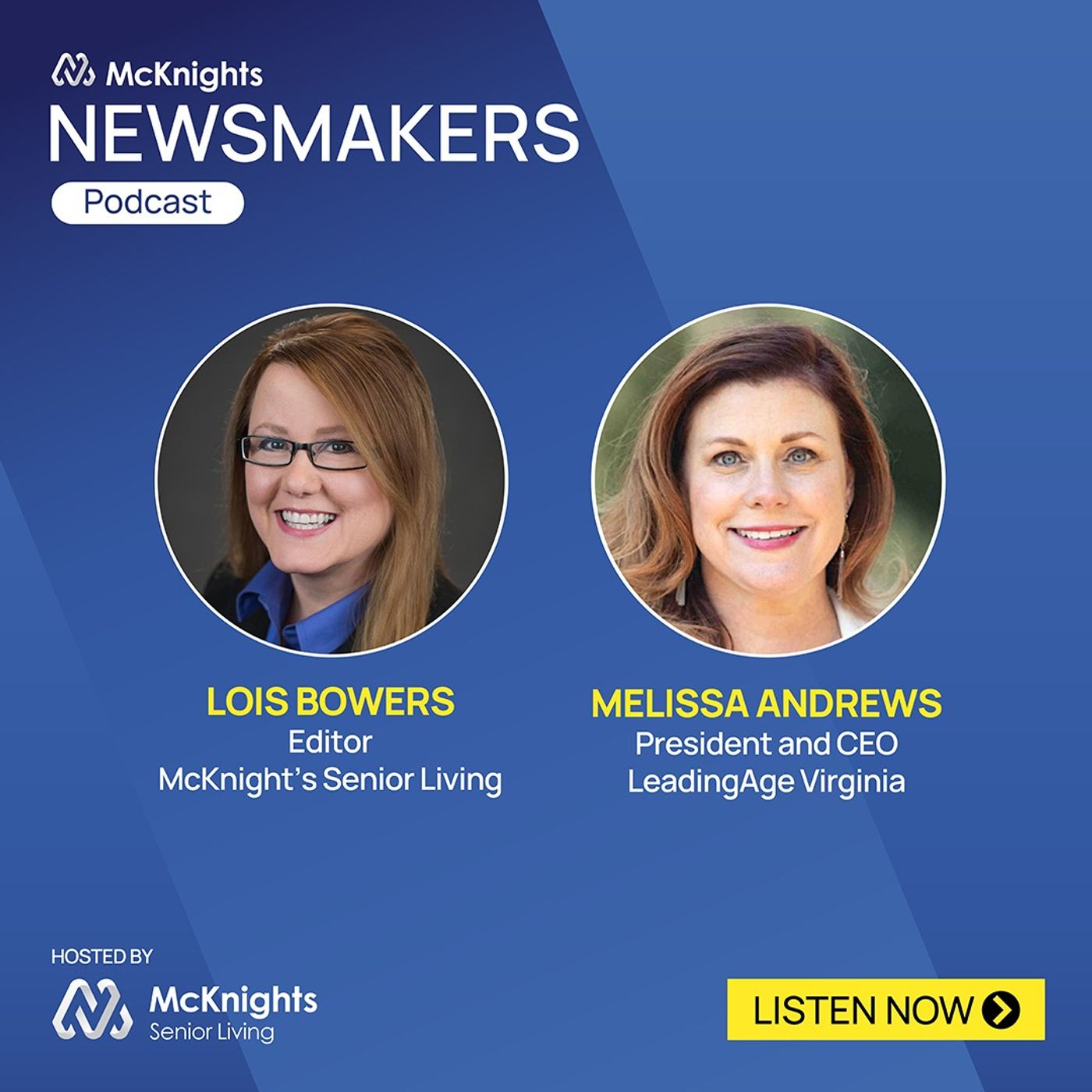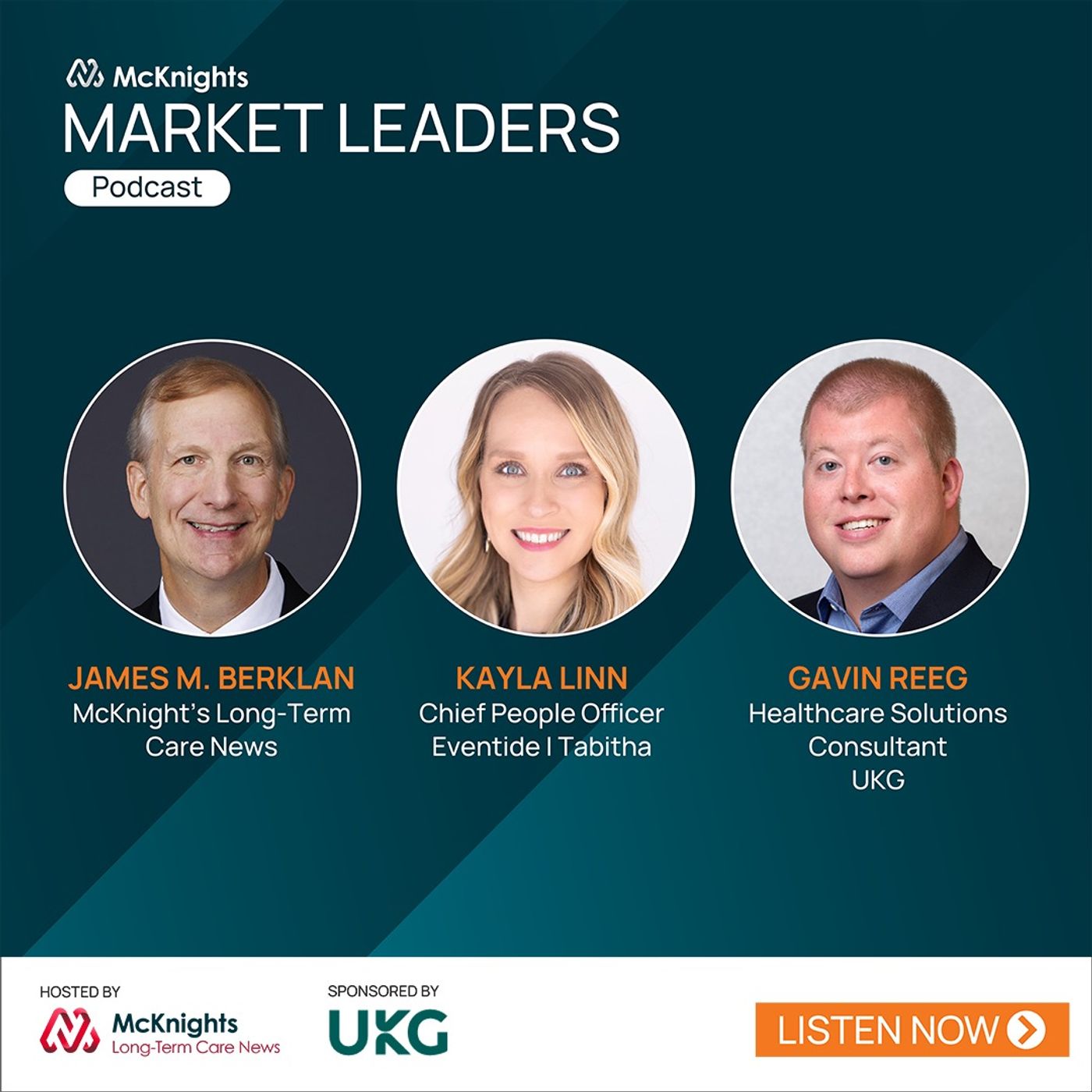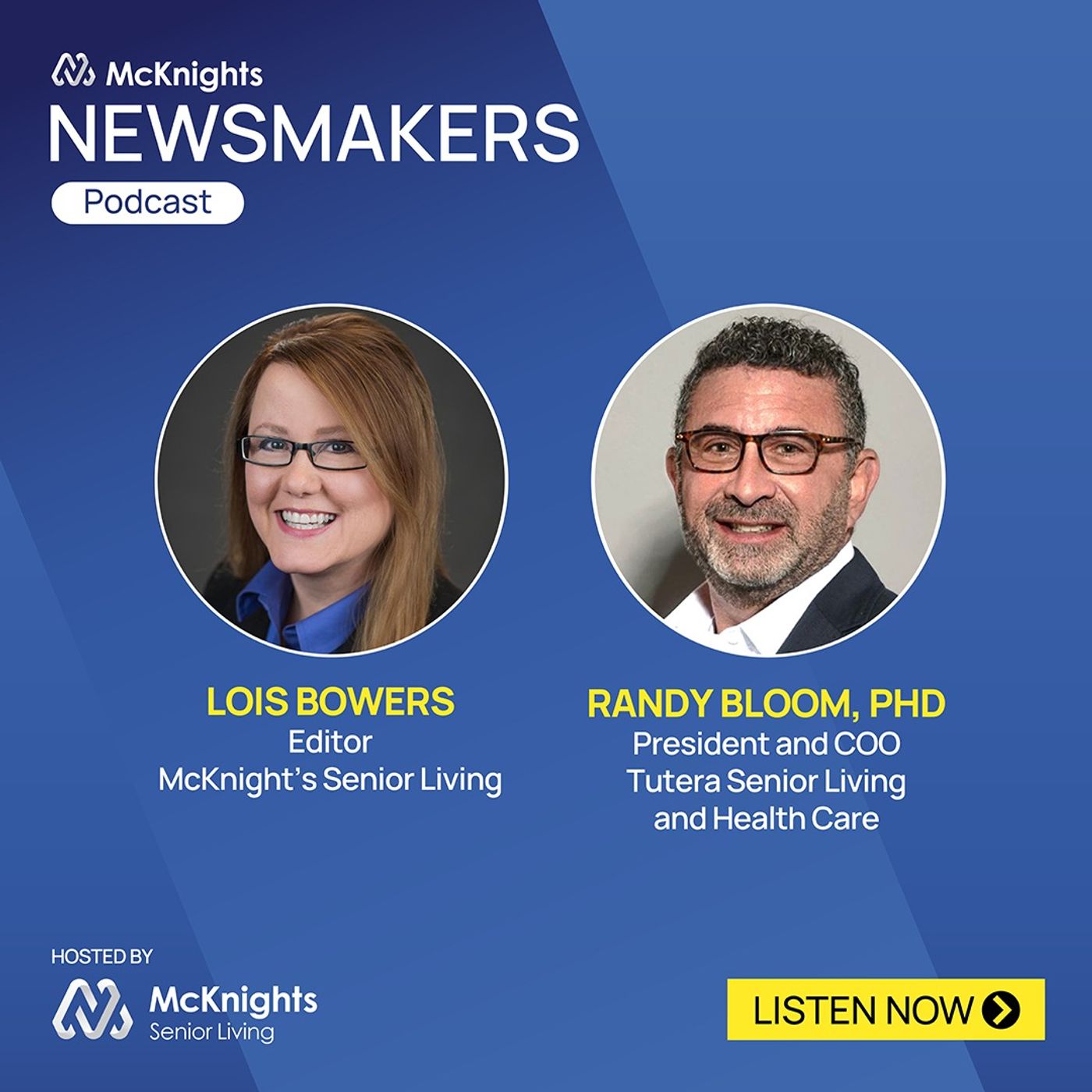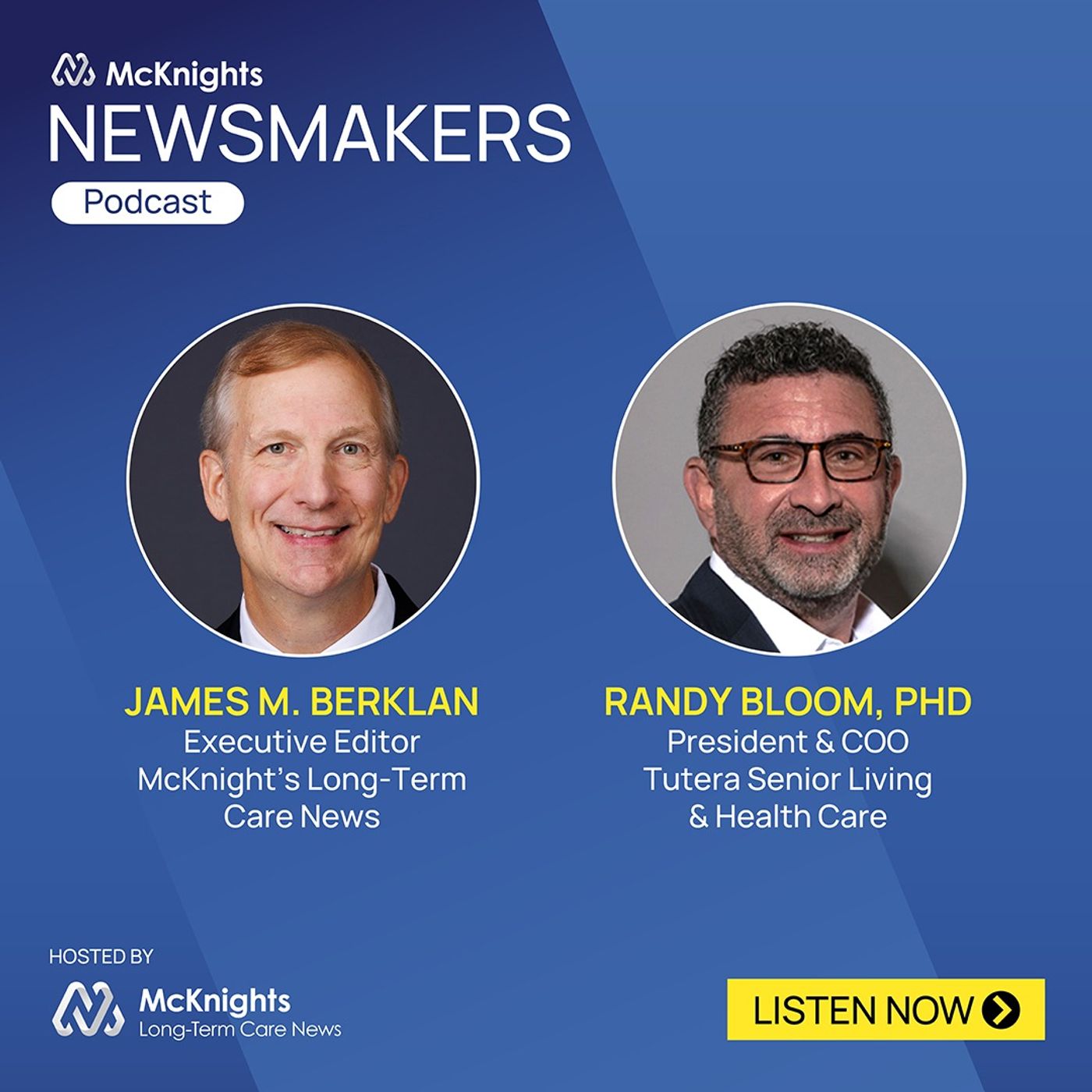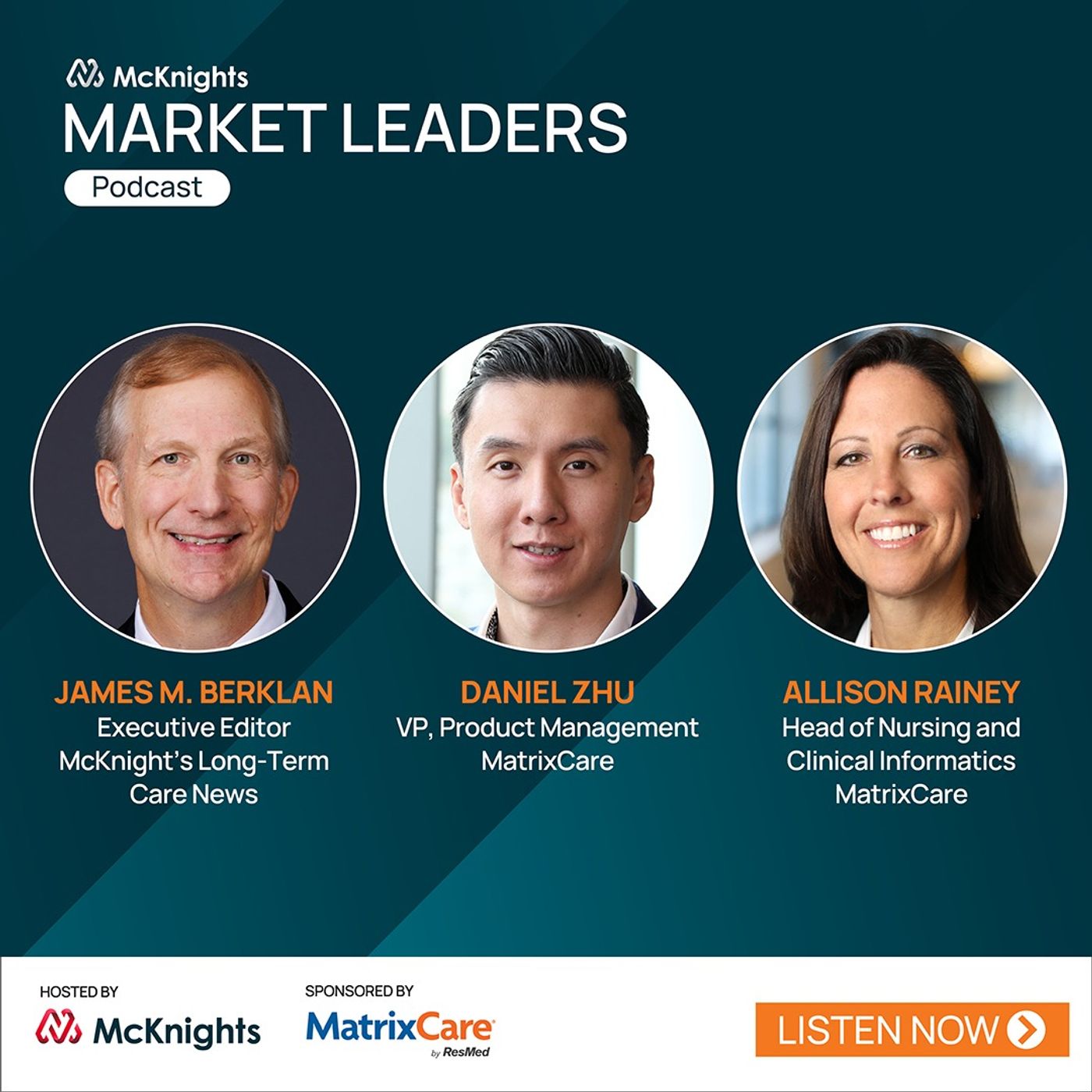Discover McKnight's Podcast
McKnight's Podcast

319 Episodes
Reverse
Revenue cycle management in skilled nursing is evolving beyond billing and collections. The future is about building trust and transparency at every step: providers knowing they’re reimbursed accurately, families understanding their bills, and payers having accountability. When that happens, providers are better equipped to sustain financial health, staff are freed from administrative burdens, and families gain confidence in the care their loved ones receive. In this episode, we take a 360-degree look at how technology is driving this shift and what a more balanced RCM future means for skilled nursing. Sponsored by MatrixCare Hosted by Simplecast, an AdsWizz company. See https://pcm.adswizz.com
for information about our collection and use of personal data for
advertising.
As fee-for-service models become less sustainable and reimbursement grows increasingly tied to quality outcomes, more long-term care operators are turning to value-based care as a path to financial stability and improved performance. In this episode of the McKnight’s Reimagining Senior Living and Long-Term Care podcast, Jim Berklan sits down with Curana Health Vice President of Operations, Tasha Janssen, NP-C, and Care Initiatives' Vice President of Clinical Services, Johanna Volm, RN, BSN, to explore how skilled nursing facilities can lay the groundwork for success before diving into value-based care arrangements. You won’t want to miss this insightful discussion, which breaks down the essential steps operators can take to avoid common pitfalls and maximize impact.
Sponsored by Curana Hosted by Simplecast, an AdsWizz company. See https://pcm.adswizz.com
for information about our collection and use of personal data for
advertising.
The Train More Nurses Act, which has been introduced in both houses of Congress, represents a positive development to address the dire shortage of nursing faculty, said Patty Knecht, PhD, RN, Chief Nursing Officer, Ascend Learning, and Molly Carpenter, Director of Workforce Strategy and Development, LeadingAge LTSS Center @UMass Boston. It would direct the secretary of the Department of Health and Human Services and the Secretary of Labor to conduct a review of nursing grant programs to find ways to increase faculty at nursing schools, especially those in underserved areas. It also would increase pathways for licensed practical nurses to become registered nurses. The faculty shortage in nursing schools means schools are turning away 80,000 students each year. The nursing shortage is even worse in the long-term care sector because it doesn’t have the “street cred” of hospitals. Still, nursing students are gaining more exposure to long-term care and home care in their training.Follow us on social media:X: @McKHomeCareFacebook: McKnight's Home CareLinkedIn: McKnight's Home CareInstagram: mcknights_homecareFollow Ascend Learning on social media:LinkedIn: Ascend LearningFollow LeadingAge LTSS Center @UMass Boston on social media:Facebook: LeadingAge LTSS Center at UMass BostonLinkedIn: LeadingAge LTSS Center @UMass BostonShow contributors:McKnight’s Home Care Editor Liza Berger; Patty Knecht, PhD, RN, Chief Nursing Officer, Ascend Learning; and Molly Carpenter, Director of Workforce Strategy and Development, LeadingAge LTSS Center @UMass Boston Hosted by Simplecast, an AdsWizz company. See pcm.adswizz.com for information about our collection and use of personal data for advertising.
The senior care industry is facing rapid change—and with it, big opportunities. In this episode, we dive into how demographic shifts, economic pressures, and new technologies are reshaping senior living. Hear fresh insights on aligning care with wellness, value-based care, and what it takes to stay ahead in a transforming landscape.
Episode sponsored by PointClickCare. Hosted by Simplecast, an AdsWizz company. See https://pcm.adswizz.com
for information about our collection and use of personal data for
advertising.
The biggest challenge facing home health providers today is the disconnect between the value that home health providers and the reimbursement environment, said Barb Jacobsmeyer, president and CEO of Enhabit Home Health & Hospice. Another difficult situation is negotiating with Medicare Advantage plans, which tend to pay lower rates, but that problem has improved as MA plans have realized the value of home health. Still, managing MA relationships is constant because it entails making a case about home health’s value and then making sure the payment is accurate. In the area of MA, data is paramount, she said. The last four years as CEO have been bumpy at times, particularly when a shareholder pushed for a strategic review based on the company’s declining share price, she noted. She was able to weather the storm because shareholders believed the company had the right strategy. In terms of advocacy, stopping home health cuts is a top priority. It’s also important that MA updates trickle down to home health. The next CEO of Enhabit needs to think innovatively and figure out how to care for more patients with less staff, she said. Even if the company is sold or goes private, the mission of helping patients and families does not change, she insisted.Follow us on social media:X: @McKHomeCareFacebook: McKnight's Home CareLinkedIn: McKnight's Home CareInstagram: mcknights_homecareFollow Enhabit Home Health & Hospice on social media:X: @enhabit_hhhFacebook: Enhabit Home Health & HospiceLinkedIn: Enhabit Home Health & HospiceInstagram: enhabithhhShow contributors:McKnight’s Home Care Editor Liza Berger; Barb Jacobsmeyer, President and CEO, Enhabit Home Health & Hospice Hosted by Simplecast, an AdsWizz company. See pcm.adswizz.com for information about our collection and use of personal data for advertising.
One of the major advocacy issues for providers is pushing for passage of the Home Health Stabilization Act, which was introduced earlier this month and would halt home health Medicare cuts for 2026 and 2027, Scott Levy, chief government affairs officer for the National Alliance for Care at Home, said. This legislation may be able to gather more co-sponsors than previous legislation, the Preserving Access to Home Health Act. Another key legislative item for members is extending telehealth waivers that are set to extend at the end of the month and waive in-person, face-to-face encounters. While there may be another short-term extension, this likely will appear in a healthcare extenders package, Levy said. The Alliance also is against making hospice part of Medicare Advantage, known as a carve-in. This is far from a “done deal,” and the Alliance wants to get ahead of the issue, Levy said. Preserving Medicaid also is on the table given the recent passage of the One Big Beautiful Bill Act. And providers will continue to talk to Congress about rescinding the controversial 80/20 rule, which is contained in the Medicaid Access Rule. Advocacy matters, Levy said. He would love to have one advocate for every member organization, which would be a total of 1,500 advocates marching on Washington. Follow us on social media:X: @McKHomeCareFacebook: McKnight's Home CareLinkedIn: McKnight's Home CareInstagram: mcknights_homecareFollow the National Alliance for Care at Home on social media:X: @TheAllianceHomeFacebook: National Alliance for Care at HomeLinkedIn: National Alliance for Care at HomeInstagram: thealliancehomeShow contributors: Editor Liza Berger; Scott Levy, Chief Government Affairs Officer, National Alliance for Care at Home Hosted by Simplecast, an AdsWizz company. See pcm.adswizz.com for information about our collection and use of personal data for advertising.
It wasn’t a typical groundbreaking ceremony at the Elizabeth Seton Children’s campus in Westchester, NY, last month.
For starters, Cardinal Timothy Dolan, the top Catholic official in the region, came out to bless the ground that will become home to nearly 100 long-term residents about two years from now.
More importantly, the construction project is like no other in the US: It is creating a much-needed home for medically complex young adults who are aging out of the organization’s prestigious children’s center.
Such children are today living longer than ever expected in past years. But in 2019, the organization saw 30% of children it discharged due to age die a little more than a year after the move. That was a clarion call for CEO Pat Tursi, who recalled crying in the chapel with staff as they mourned the loss of children who’d become like family.
Now, Tursi sees her fledging young adult center — a demonstration project funded in part by New York state and the Centers for Medicare & Medicaid Services — as a potential model for providers all over the country facing similar realities.
“We needed to be the pioneers, and we needed to be the innovators because that is what we do and nobody else wanted to do it,” Tursi tells McKnight’s Senior Editor Kimberly Marselas in this episode. “How can you just sort of take away all of the wonderful foundation that we've built upon and the love and and have it just, you know, disappear at age 21.”
Under the new model, older residents will be able to stay with Elizabeth Seton Children’s until age 35. Buoyed by private donations, the organization is building a physical campus that supports residents with upgraded features and the technical specifications needed to serve young adults with physical needs, such as ventilator and trach care, and severe intellectual and other disabilities.
Mobility for residents within the center — their home — and the ability for most residents to go on outings with the support of a robust staff have been key considerations.
Listen to this special episode to learn from Tursi about what she envisions for today’s residents, tomorrow’s young adults with intense medical needs — and what lessons traditional skilled nursing providers can take from Elizabeth Seton Children’s journey.
Hosted by Simplecast, an AdsWizz company. See https://pcm.adswizz.com
for information about our collection and use of personal data for
advertising.
Follow us on social media: X (formerly Twitter): @McKHomeCare Facebook: McKnight's Home Care LinkedIn: McKnight's Home Care Instagram: mcknights_homecare Follow Chapters Health System on social media: X (formerly Twitter): https://x.com/Chapters_Health/with_replies Facebook: https://www.facebook.com/ChaptersHealth/ LinkedIn: https://www.linkedin.com/company/chapters-health-system/ Instagram: https://www.instagram.com/chaptershealthsystem/?hl=en Show contributors: McKnight’s Home Care Staff Writer Adam Healy and Andrew Molosky, president and CEO of Chapters Health System Hosted by Simplecast, an AdsWizz company. See pcm.adswizz.com for information about our collection and use of personal data for advertising.
Modivcare provides 15,000 personal care aides to 13,000 patients in seven states, said Bekah Corns, VP of quality and clinical, home, Modivcare. The company also provides nonmedical emergency transportation and remote patient monitoring. Medicaid is a major payer for Modivcare’s personal care program, and the vast majority of the company’s personal care workforce is nonskilled home care aides, she noted. There is nursing oversight of aides in several states, she pointed out. While the One Big Beautiful Bill Act will significantly cut Medicaid funding, the impact on Modivcare’s personal care patients and workers is not yet clear, Corns said. Going forward, it will be important to advocate how personal care provides value for patients and to larger communities and how it is less expensive to care for someone in their home than to send them to a nursing home. The workforce shortage presents another obstacle for personal care. Modivcare’s strategy is to offer the most competitive rates based on reimbursement, and investing in learning platforms to provide education for aides and a rewards platform to recognize deserving aides. Many family caregivers work for Modivcare, Corns said.Follow us on social media:X: @McKHomeCareFacebook: McKnight's Home CareLinkedIn: McKnight's Home CareInstagram: mcknights_homecareFollow Modivcare on social media:X: @ModivcareFacebook: ModivcareLinkedIn: ModivCareShow contributors:McKnight’s Home Care Editor Liza Berger; Bekah Corns, VP of quality and clinical, home, Modivcare Hosted by Simplecast, an AdsWizz company. See pcm.adswizz.com for information about our collection and use of personal data for advertising.
Follow us on social media:X (formerly Twitter): @McKHomeCareFacebook: McKnight's Home CareLinkedIn: McKnight's Home CareInstagram: mcknights_homecare Follow BrightStar Care on social media:X (formerly Twitter): https://x.com/brightstarcareFacebook: https://www.facebook.com/BrightStarCare/LinkedIn: https://www.linkedin.com/company/72717/admin/Instagram: https://www.instagram.com/brightstarcare_corporateoffice/Show contributors:McKnight’s Home Care Staff Writer Adam Healy and Andrew Ray, chief executive officer of BrightStar Care. Hosted by Simplecast, an AdsWizz company. See pcm.adswizz.com for information about our collection and use of personal data for advertising.
Midland Care Connection, a nonprofit in Topeka, KS, offers the spectrum of senior care to people over 55 in 40 counties in Kansas and Missouri. Its services include home health, hospice, palliative care and the Program of All-Inclusive Care for the Elderly (PACE). It also is the owner of an Accountable Care Organization. Dual eligibles make up about 85-90% of Midland Care’s PACE clients. PACE, which provides a range of services to keep people in their homes and out of nursing homes, helps to improve the quality of life and lower healthcare costs of dual eligibles within the first 90 days, Wiltz said. Preventive care, he emphasized, is the key to treating this group. One of the biggest changes that has taken place since the organization started PACE in 2007 has been Kansas’ growing understanding and acceptance of PACE. This bodes well with the recent passage of the One Big Beautiful Bill Act, which contained federal Medicaid reductions. Midland Care’s diversified revenue streams also help to shoulder the organization from Medicare home health and Medicaid reimbursement cuts. With the continuing reductions to home health payment, Wiltz believes home health is reaching a crisis point. Agencies are going to have to pivot away from Medicare fee-for-service and move to models such as Medicare Advantage’s Dual Eligible Special Needs Plans (D-SNPs).Follow us on social media:X: @McKHomeCareFacebook: McKnight's Home CareLinkedIn: McKnight's Home CareInstagram: mcknights_homecareFollow Midland Care Connection on social media:X: @MidlandCaresFacebook: Midland Care Connection, Inc.Show contributors:McKnight’s Home Care Editor Liza Berger; Jeremy Wiltz, Vice President of Strategic Initiatives, Midland Care Connection Hosted by Simplecast, an AdsWizz company. See pcm.adswizz.com for information about our collection and use of personal data for advertising.
The way Robin Hillier sees it, there is not a single process that is going to make or break a skilled nursing facility more than the MDS resident assessment. She should know.
A 40-year long-term care veteran, who serves on major association national advisory panels and boards, in addition to once owning her own facility and now running her own consultancy, Hillier is a long-term care guru of rare caliber.
Her insights into the power of the Minimum Data Set and related coding procedures are just the tip of the iceberg. She tells McKnight’s Long-Term Care News Executive Editor James M. Berklan in this McKnight’s Newsmaker podcast that this is “certainly one of the most complicated eras that we’ve been in.”
She cautions about situations where high-quality, yet unsuspecting providers may be most prone to new audits and scrutiny from the Centers for Medicare & Medicaid Services. She also counsels about coping with provisions of BBBA, which, she emphasizes, will affect each state differently.
“A group of people have their head in the sand and think there’s nothing in here that could possibly be bad,” she says. “And then the other opposite is ‘the sky is falling.’”
Hillier also confides about her “geeky” side and how she looks eagerly ahead at this time each year, and why.
Download this podcast to hear her full remarks, which include best practices advice in numerous subject areas. Hosted by Simplecast, an AdsWizz company. See https://pcm.adswizz.com
for information about our collection and use of personal data for
advertising.
There are serious ramifications for the continued payment reductions in the Medicare home health regulations, Steven Landers, MD, MPH, CEO of the National Alliance for Care at Home, said. Beyond the lack of access to home health services, the whole payment structure has been decimated, he said. This year, the home health payment program will total just over $15 billion, down from $17.8 billion in 2019. The cuts are making it harder for agencies to have the purchasing power to staff agencies. Another negative development for home care is the passage of the “Big Beautiful” bill, which will place pressure on states to reduce home- and community-based services. The Medicaid work requirements in the law may hurt personal care workers who use Medicaid as their health insurance, he noted. While home care is not the most powerful lobbying contingent in Washington, “sometimes right beats might,” Landers said. Landers’ past positions, which included his role as director of home care at the Cleveland Clinic, helped him see the value of home care and how policy making in Washington affected the care regular people receive. As part of his tenure, he would like to see home care providers be able to deploy new care models such as the Medicare Care Choices Model. Landers sees the Alliance being a partner with the Centers for Medicare & Medicaid Services to combat rampant hospice fraud.Follow us on social media:X: @McKHomeCareFacebook: McKnight's Home CareLinkedIn: McKnight's Home CareInstagram: mcknights_homecareFollow the National Alliance for Care at Home on social media:X: @TheAllianceHomeFacebook: National Alliance for Care at HomeLinkedIn: National Alliance for Care at HomeInstagram: thealliancehomeShow contributors:McKnight’s Home Care Editor Liza Berger; Steven Landers, MD, MPH, CEO, National Alliance for Care at Home Hosted by Simplecast, an AdsWizz company. See pcm.adswizz.com for information about our collection and use of personal data for advertising.
Leaders at River Spring Living in New York are on the verge of flipping the “on” switch for a “rehab model for the future” that aims to revolutionize the way therapy is delivered.
Featuring robotic elements, its goal is to shrink the length-of-stay for short-term patients and employ numerous kinds of newer technology.
THe Hauser Rehab Center of Excellence has been built with the input of not only clinicians but also the housekeeping, food service and activities departments, says RiverSpring COO Deborah Messina in this McKnight’s Newsmakers podcast.
Hear how this innovative life plan community has converted parts of three existing buildings to bring the vision to reality. An October start date is racing up, but comfortably so, Messina tells McKnight’s Executive Editor James M. Berklan.
Hosted by Simplecast, an AdsWizz company. See https://pcm.adswizz.com
for information about our collection and use of personal data for
advertising.
Americans plan their vacations in more painstaking detail than they plan for aging, even though the aging stage of life lasts much longer, said Peter Ross, CEO of Senior Helpers. After meeting Richard Wexler, host of the podcast Caring in America about a year and a half ago, they decided to launch a nonprofit foundation to help Americans plan their aging journeys and be proactive. The result is APlan2Age.org. Unlike other sites that provide resources, APlan2Age is noncommercial and does not seek to profit off the site, Ross said, noting that Senior Helpers is an advisory council member. He encourages other home care firms to reach out and help support the site. One of the site's signature aspects is a care plan that visitors can fill out and modify over time. Ross noted that the purpose of APlan2Age is to try to prepare for the aging process as a way to head off a catastrophic life event. Families, for example, might talk about installing grab bars in loved ones’ showers to help prevent falls. Wexler learned about the importance of planning the hard way — when he and his wife were thrust into caregiving roles for their parents in their 80s. One of the big reasons to prepare for aging is to take pressure off family caregivers who shoulder most of the burden of caring for aging family members, Ross said. The next big development for APlan2Age will be Tuesday, July 29, at 1 pm ET, when Ross and Wexler hold a webinar entitled “The National Conversation on Aging.”Follow us on social media:X: @McKHomeCareFacebook: McKnight's Home CareLinkedIn: McKnight's Home CareInstagram: mcknights_homecareFollow APlan2Age on social media:Facebook: APlan2AgeInstagram: aplan2ageShow contributors:McKnight’s Home Care Editor Liza Berger; Peter Ross, CEO of Senior Helpers and Co-founder of APlan2Age; Richard Wexler, CEO and Co-founder of APlan2Age Hosted by Simplecast, an AdsWizz company. See pcm.adswizz.com for information about our collection and use of personal data for advertising.
The need and opportunity for senior living providers to serve middle-income older adults have been in the spotlight especially since 2019. In this Newsmaker's podcast, Melissa Andrews, president and CEO of LeadingAge Virginia, joins McKnight's Senior Living Editor Lois Bowers to discuss what has changed from 2019 to now, as well as important considerations — and new resources on the way — for those who wish to serve the middle market. Hosted by Simplecast, an AdsWizz company. See https://pcm.adswizz.com
for information about our collection and use of personal data for
advertising.
In this episode, we explore how Eventide Senior Living Communities is transforming the post acute and senior living experience by investing in its most valuable asset—its people. Joined by Kayla Linn, Chief People Office from Eventide and Gavin Reeg, Healthcare Solutions Consultant from UKG, we discuss how leveraging UKG's AI-driven, people first solutions helped Eventide boost employee engagement, improve efficiencies, including significant time savings with PBJ reporting, and ultimately enhance resident care. For example, by utilizing UKG solutions, Eventide was able to reduce PBJ reporting time by 99% from 16-20 manual hours per cycle down to seconds with the click of a button. Hear how the right technology can support a culture of trust, improve work-life balance for caregivers, and position senior living organizations for long-term success in an evolving industry.
Whether you're in healthcare leadership, HR, operations, or workforce management, this conversation offers powerful insights into aligning mission-driven care with modern technology. Hosted by Simplecast, an AdsWizz company. See https://pcm.adswizz.com
for information about our collection and use of personal data for
advertising.
As Tutera Senior Living and Health Care marks its 40th anniversary, President/COO Randy Bloom shares with McKnight's Senior Living Editor Lois A. Bowers how the company is meeting evolving resident expectations and the industry's ongoing challenges related to employee recruitment and retention, and he also discusses the organization's growth strategy and the country's increasing need for more affordable senior living options. Hosted by Simplecast, an AdsWizz company. See https://pcm.adswizz.com
for information about our collection and use of personal data for
advertising.
While most long-term care providers understandably dread the staffing recruitment and retention problems that face virtually everyone in the business, there’s a different mindset at Tutera Senior Living & Health Care. They call staffing a “huge opportunity.”
It’s the type of proactive optimism that has led Tutera, which manages 86 communities in 10 mostly Midwestern states, to rise up and embark on a year-long, multi-tiered 40th anniversary celebration.
“Our outlook is very bright. We continue to grow for the right reasons and we’re growing in a way that allows us to be successful,” Tutera President and COO Randy Bloom tells Executive Editor James M. Berklan in this McKnight’s Newsmakers podcast.
At the heart of it all is a philosophy of how to best deal with people — residents, families, the company’s 6,000-plus employees and others, Bloom says. The special Tutera Younite approach is the anchor.
Download this special podcast to learn more about what makes the Tutera powerhouse tick, and the characteristics leaders say allow them to operate successful life plan communities and other freestanding facilities in an increasing number of locations. Hosted by Simplecast, an AdsWizz company. See https://pcm.adswizz.com
for information about our collection and use of personal data for
advertising.
In this episode of the Reimagining Senior Living and Long-Term Care series, Jim sits down with Allison Rainey, Head of Nursing and Clinical Informatics at MatrixCare, and Daniel Zhu, Vice President, Product Management at MatrixCare, to explore the concept of collaborative intelligence in modern care planning. Together, they dive into how the integration of human expertise with AI-powered insights is reshaping the care planning process—helping care teams make faster, more informed decisions while still honoring the clinical judgment and personalized touch that residents deserve. From surfacing relevant goals to reducing variability across shifts, this conversation highlights how technology is not replacing the human element but enhancing it to elevate both efficiency and outcomes. Hosted by Simplecast, an AdsWizz company. See https://pcm.adswizz.com
for information about our collection and use of personal data for
advertising.


